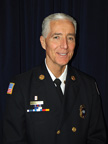
We are taught as children that we rightfully praise and admire those people whose actions have gone against their own self-interests. We justly provide medals and awards to those who act, despite almost certain injury or loss, to advance another or support the mission. This is in recognition of the fact that most of our actions and efforts can be explained by our pursuit of our own self-interest and well-being. This is not to say that doing good things to advance one’s self or position is at all wrong or anything to frown on; it simply is meant to compliment those who can put others ahead of themselves.

We do things like show up for work, eager to complete assignments on time or ahead of time, because doing so directly benefits either our financial situation or our social status. Actions that help others more than they help ourselves are rare among most ordinary folks. Firefighters, however, are different. Although it has never been proven, it can be argued that firefighters have an extremely elevated level of sympathy. Sympathy, simply put, is the ability to be affected by the feelings and experiences of others. Sometimes another’s person’s situation may prompt us to action. As firefighters, it doesn’t matter to us if someone is injured or if someone injured others; as firefighters, our level of sympathy is not affected by the actions that have resulted in someone’s situation—it is only the situation of the others that we consider.
It was late January, around 1985. The weather was well below freezing. The call came in at 3:00 a.m. It was a familiar call to a familiar location and to a familiar customer. Engine 15 was toned out to back up the rescue and ambulance. Captain Sanchez and the crew dutifully headed to the rig, and driver Omar lit it up and drove the rescue skillfully behind the engine.
Everyone was cold; everyone was tired from a small fire and other calls earlier in the evening and eager to find out what situation had pulled them from their beds and out into the cold bitter night once again. A small group of police officers pointed with their flashlights at a 30-ish or so homeless man who was obviously extremely inebriated and feeling ill. The crew headed back to the rig to fetch the gurney while the medics worked to get information from the homeless customer.
Vital signs were taken, information was gathered, and the homeless man was taken away by the ambulance crew to a hospital. The crews were quiet as the rigs returned to the station.
Once back in the house, everyone was getting down from their rigs and getting ready to head back to the bunk room when Lieutenant Mora stopped Omar and asked, “Omar, where are your shoes?”
Omar replied, “I gave them to him.”
Mora asked, “To whom?”
Omar said, “To the homeless guy; he didn’t have any shoes or socks.”
Omar didn’t say anything else and walked back to the bunk room. He was not a rich man; he was a Vietnam vet and was a good engineer, but he had issues—family stuff, as many of us do. He had debts and he had personal concerns, but he had an incredible sense of sympathy.
He taught all of us that night that our own personal comfort is not what this job is about. He taught all of us that night that it is not the big things you do; it is the small things. He taught all of us that night that kindness isn’t something you do once in a while; it’s something you do all the time. He taught all of us a lesson about what it truly means to be a firefighter.
He taught all of us what it means to really leave no one behind, even if that means you continue a shift without your shoes. Now it may not seem like a big deal—socks and shoes—but it is. Socks and shoes are about dignity. Socks and shoes are about comfort and mobility, protection and understanding—that basic necessity intuitively is the mark of a firefighter. Responding to it is the mark of an excellent firefighter. Responding to it without any expectation of recognition or reward is what it means to be a good person, to be in a state of grace.
People like Omar are living in a state of grace. Grace is an interesting word. There are graceful dancers, graceful speakers, graceful hosts—all of them worthy of our admiration and praise. But those who exist in a state of grace are different: They are to be followed not physically but emulated in spirit and deed. To be in a state of grace allows firefighters to respond without judgment or ascribe a behavioral explanation for someone else’s plight but to understand the situation. It allows seasoned firefighters to be moved but not immobilized, to be in the moment but not consumed by it, to be deeply focused and at the same time completely aware of everything around them.
Grace is a gift, a state of mind in which one recognizes the opportunity and continuously seizes it to give to someone else a sense of self-worth, a sense of dignity. Grace is what we hope to see in our children and in our friends and what the world sees in you, the American firefighter, the most graceful of all servants.

